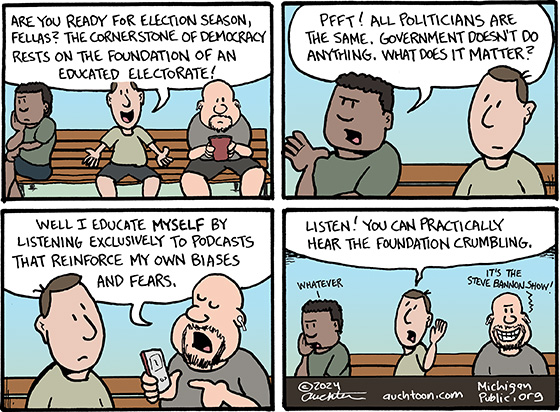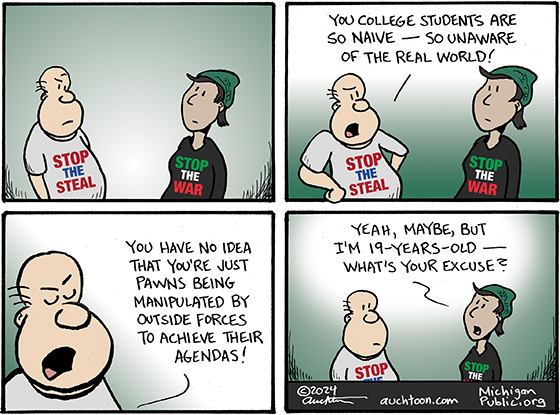The Foundation Is Crumbling

As you may have gathered, I’m not a “make America great again” kind of person. It’s not that I don’t think America is great. (It is — especially the concept of it.) It’s just that I don’t think America has been a substantially better country at any given time in its history than it is now.
If we’re honest, we tend to paint the supposed good times with broad brush stokes that cover over those who were having a bad time. Nostalgia, rose-colored glasses, call it what you want.
Nevertheless, I can unabashedly say that I think our country was in a much better place 30 to 60 years ago when nearly everybody read a daily newspaper and was availed to network news broadcasts that had journalistic guardrails. There was a baseline level of knowing what was going on that was generally shared by everybody. It wasn’t perfect. It provided limited options. And, horrors, it could be considered not very entertaining. But the net effect was an at least somewhat informed electorate.
I’m not suggesting that we should try to go back — most obviously because we can’t. The newspaper business model has been thoroughly eviscerated and technology has nearly left network news in the dustbin of history. But it would be helpful if we could find another way to get to that baseline level of shared knowledge.










